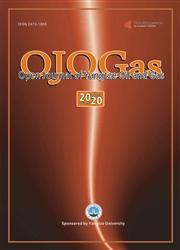Intelligent Recognition Method of Insufficient Fluid Supply of Oil Well Based on Convolutional Neural Network
引用次数: 1
Abstract
Traditional methods for judging the degree of insufficient fluid supply in oil wells have low efficiency and limited accuracy. To address this problem, a method for intelligently identifying the degree of insufficient fluid supply in oil wells based on convolutional neural networks is proposed in this paper. Firstly, 5000 indicator diagrams with insufficient liquid supply were collected from the oilfield site, and a sample set was established after preprocessing; then based on the AlexNet model, combined with the characteristics of the indicator diagram, a convolutional neural network model including 4 layers of convolutional layers, 3 layers of down-pooling layers and 2 layers of fully connected layers is established. The backpropagation, ReLu activation function and dropout regularization method are used to complete the training of the convolutional neural network; finally, the performance of the convolutional neural network under different iteration times and network structure is compared, and the super parameter optimization of the model is completed. It has laid a good foundation for realizing the self-adaptive and intelligent matching of oil well production parameters and formation fluid supply conditions. It has certain application prospects. The results show that the accuracy of training and verification of the method exceeds 98%, which can meet the actual application requirements on site.基于卷积神经网络的油井供油不足智能识别方法
传统的判断油井供液不足程度的方法效率低,精度有限。针对这一问题,本文提出了一种基于卷积神经网络的油井供液不足程度智能识别方法。首先,从油田现场采集了5000张供液不足的指标图,经过预处理建立了样本集;然后基于AlexNet模型,结合指标图的特点,建立了包括4层卷积层、3层下池层和2层全连接层的卷积神经网络模型。使用反向传播、ReLu激活函数和丢弃正则化方法来完成卷积神经网络的训练;最后,比较了卷积神经网络在不同迭代次数和网络结构下的性能,完成了模型的超参数优化。为实现油井生产参数与地层供液条件的自适应智能匹配奠定了良好的基础。具有一定的应用前景。结果表明,该方法的训练和验证准确率超过98%,能够满足现场实际应用要求。
本文章由计算机程序翻译,如有差异,请以英文原文为准。
求助全文
约1分钟内获得全文
求助全文

 求助内容:
求助内容: 应助结果提醒方式:
应助结果提醒方式:


